Experts discuss topics of strategic partnership at Chinese-Russian academic meeting on Arctic theme 2020
Co-sponsored with the Oceanic University of China and St. Petersburg State University, the 9thChinese-Russian Academic Meeting on the Arctic topics was held offline at South China Business College from December 2 to 3 and online via Zoom. Experts from China and Russia joined to discuss topics of strategic partnership in such areas as cooperation in Arctic science education, potentials of China and Russia for medical cooperation in the Arctic Region, economic cooperation, and Arctic environmental protection cooperation.
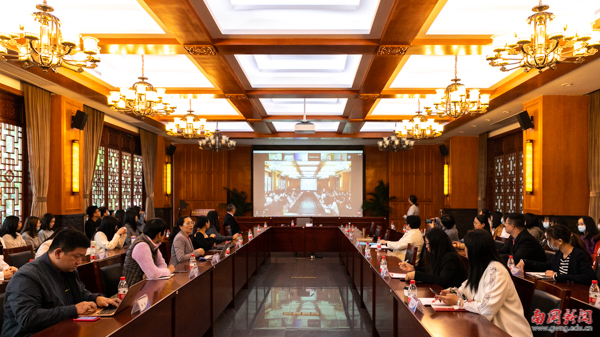
Participants in the academic meeting included over 100 scholars and experts from South China Business College, China Ocean University, China Polar Research Center, Russian Institute of Eastern Europe and Central Asia of the Chinese Academy of Social Sciences, Institute of biotechnology of the Chinese Academy of Medical Sciences, Beijing Second Foreign Studies University, Hainan University, China University of Petroleum, and Tongji University in China and several universities, scientific research institutes, and government organizations from Moscow, St. Petersburg, Yamalo-Nenets Autonomous District in Russia.
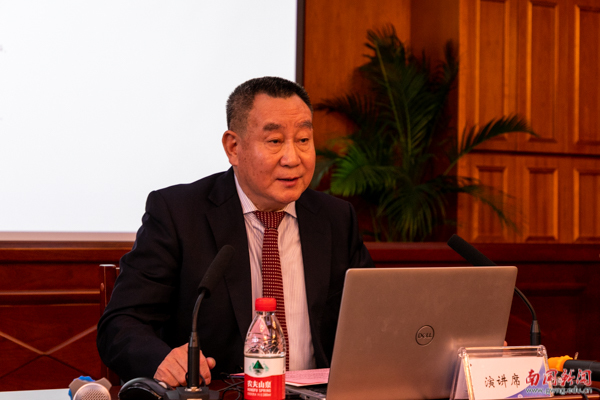
Prof. Gu Yeli, general supervisor of South China Business College, delivered a speech at the opening ceremony. “The strategic cooperation between China and Russia in both international and regional affairs has been a strong positive force to world peace and stability, and the sustainable development of the Arctic area is part of such cooperation,” he said. According to Prof. Gu, SCBC’s Center for Polar Research has established cooperation agreement on quite a few endeavors with its Russian counterparts, including one with the Arctic Science Center of Yamalo-Nenets Autonomous District to promote the utilization of biological resources and the studies of aboriginal culture in the Arctic region, and one with the Russian Academy of Antarctic and Arctic Sciences and the Arctic Science Center of Yamalo-Nenets Autonomous District to co-sponsor an annual Arctic Science summer camp. Moreover, research fellows from SCBC attended and addressed many China-Russia international conferences on the Arctic theme, with one researcher awarded travel allowance for the 2020 IASC Science Summit Week held in Iceland and a CNARC Fellowship. The 9th Chinese-Russian Academic Meeting on the Arctic topics was also a great opportunity for researchers from South China Business College to learn from the many distinguished scholars and experts gathering for the occasion. At the end of his speech, he wished the Meeting a great success.
At the Meeting, 36 scholars from China and Russia delivered keynote speeches, of whom Luo Ying, Jin Lili, and Xia Haixia spoke on behalf of South China Business College. Luo Ying and Jin Lili were also hosts of parallel panel meeting.
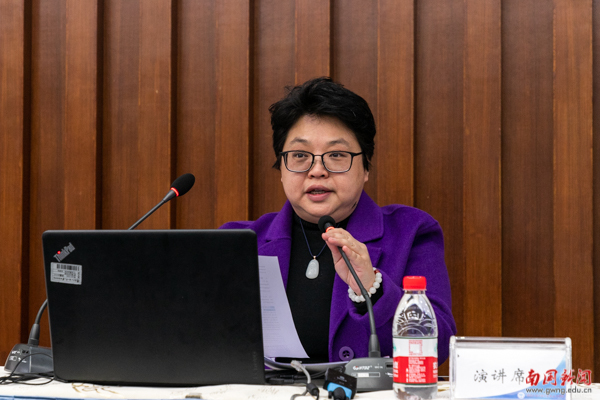
Jointly sponsored by the Ocean University of China and St. Petersburg National University, the Chinese-Russian Academic Meeting on Arctic topics was founded in 2012, The Meeting, hosted alternately by the two Chinese and Russian Universities, has attracted broad participation of scholars, experts, and representatives from enterprises and government organizations. After eight successful meetings in the past years with in-depth exchanges between China and Russia on the development and cooperation of the Arctic region, the Meeting has developed into an institutionalized and normalized exchange platform between Chinese and Russian Arctic scholars. The 2020 Meeting has been hosted by China Ocean University and co-sponsored by South China Business College and St. Petersburg National University. At the end of the Meeting, Prof. Guo Peiqing from China Ocean University and Prof. Kharlampeva Nadezhda Klimovna from St. Petersburg National University expressed their gratitude to South China Business College for its contribution to the success the Meeting, and to all participating parties for their efforts to broaden the areas of discussion at the Meeting.
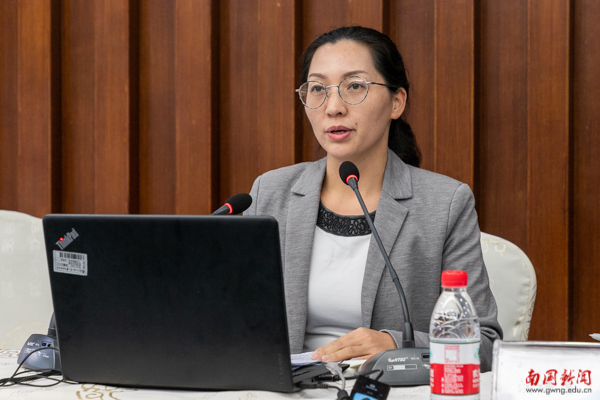
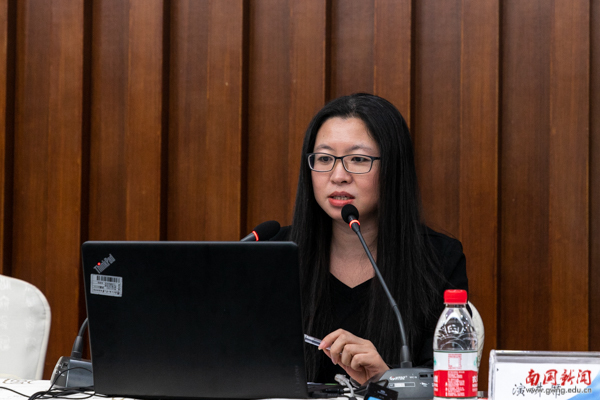
SCBC’s Center for Polar Research was registered in the filing system of the Regional and National Studies of the Ministry of Education in June 2017; in May 2018, it was accepted as a member of the China-Nordic Arctic Research Center (CNARC); and in October 2020, it became a member of Northeast Asia Arctic Shipping Research Alliance. Since its establishment, the Center has carried out comprehensive research on the economy, culture, history, and geography of the countries around the Arctic region according to the country’s strategic needs and policy priorities. At present, the Center has published several works, for example, Research Institutes and Organizations Related to Polar Studies(Social Sciences volume), and quite a number of academic papers on international and domestic journals. Its presence has proved a driving force to disciplinary building and personnel training.
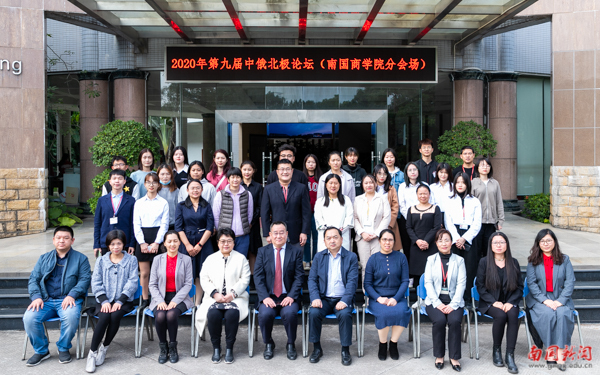
“Polar issues are up on the level of national strategy, and our center should do our part for that,” said Liu Lanfeng, head of the Center for Polar Research. “Next, we will focus our work on how to integrate researches on polar issues with the development of Guangdong-Hong Kong-Macao Greater Bay Area and contribute to the export-oriented economy in the bay area,” she added.
SCBC holds the first Classic English Essay Recitation Contest for non-English majors
On December 3, the final of the first Classic English Essay Recitation Contest for non-English majors took place at the International Conference Hall of South China Business College. The Contest, sponsored by SCBC’s “Strengthening Foreign Language Training for Higher Language Proficiency” Task Force and the Division of Academic Affairs and hosted by the Faculty of College English, took 20 students of non-English major into the final after two rounds of selection. These contestants whose performance were to be evaluated by judges from the Faculty of College English would stand on stage to show their ability in front of a vast audience, including Chair of Board Ding Xiaojun, Executive President Wang Hua, Supervisor Gu Yeli, Vice President Wang Xinjie, Vice President Zhao Chen, and many other teachers and students.

The final consisted of two sessions. In the first session, the constants chose to recite one of the designated five essays, which were: Cultivating Our Hearts, What I Have Lived for, The Goodness of Life, Youth, and The Love of Beauty. Ten out of the 20 contestants who the judges believed scored higher in terms of pronunciation and intonation, emotional expression, and posture went to the second session. They had to recite a randomly-picked essay of two minutes from ten designated options.
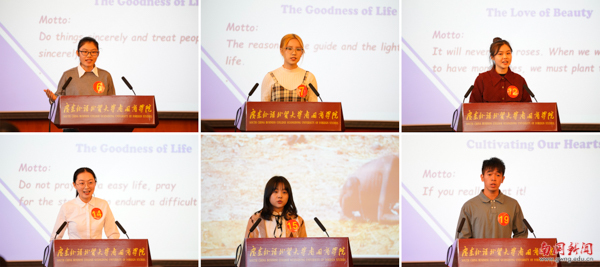
The first round started with a round of applause. The contestants took turns reciting their chosen piece. Everyone in the audience was moved by their passionate recitation, either in a low, or measured, or elated tone. When it came to the climax of emotional expression, the contestants burst out in excitement, with their heads slightly tilted upward and their hands stretching out, you could even see tears in their eyes.
The ten winners of the first session fared even better in the second session. Sometimes their jovial tone invited the audience into the world of joy; sometimes their soft, gentle words sounded like story telling. All was a feast of beauty to the audience.
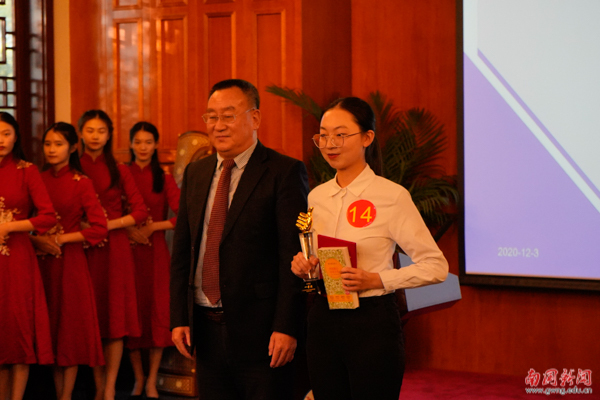
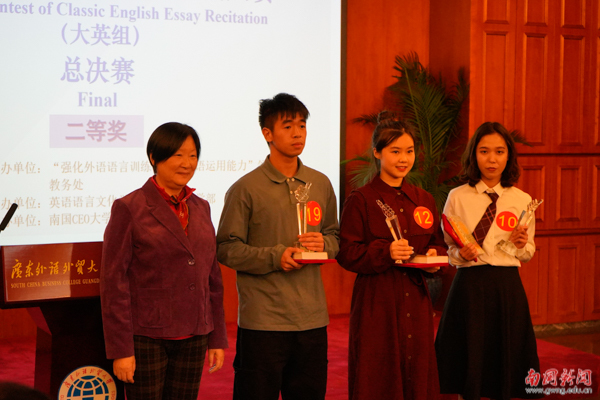
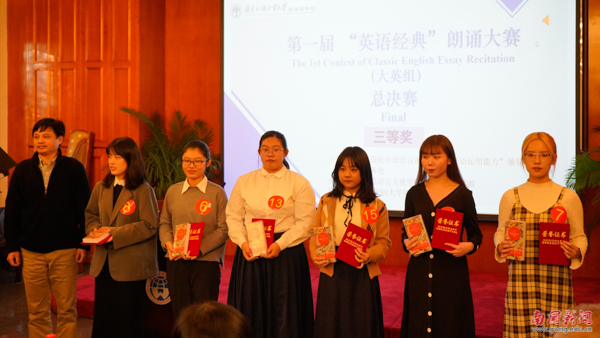
In an interview, Vice President Wang Xinjie spoke highly of each contestant’s excellent performance. She hoped that the contestants could take this opportunity to show their own strength and step up their efforts to study foreign languages in the future. The purpose of this contest, she said, was to help create a good environment for foreign language studies and to showcase the characteristics of SCBC’s educational mission. She also shared her experience of how to learn English in the interview.
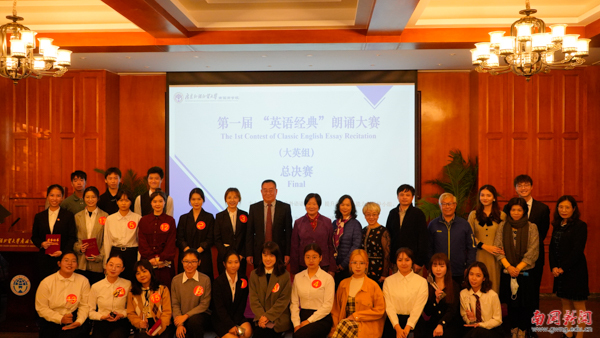
The classic essays for the Contest were chosen by teachers from the School of English Language and Culture and the Faculty of College English based on the following criteria: the quality of language, the philosophy of life, and the cultural elements. SCBC’s “Strengthening Foreign Language Training for Higher Language Proficiency” Task Force has intended to build the Classic English Essay Recitation Contest into a brand event for the campaign of “Learning and Speaking Foreign Languages Anytime Anywhere”. As it has turned out, the Contest has not only inspired students to speak English and feel the beauty of the language, but also opened for them the door to the kaleidoscopic world of English culture.